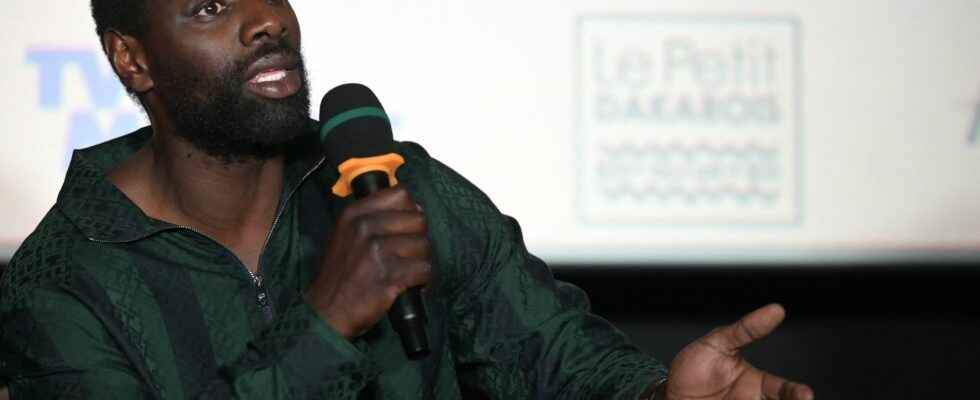Anthony Guyon, professor at Sciences Po, is the author of the book Senegalese skirmishers – From native to soldier, from 1857 to the present day (Perrin, 2022). On the occasion of the release of Mathieu Vadepied’s film with Omar Sy, the academic returns to the story of these soldiers, first recruited in Senegal then across all of Africa in the French colonies, who officiated from 1857 to 1962.
L’Express: What did you think of the film? Skirmishers ? Is it faithful to historical truth?
Anthony Guyon: It is a nuanced film, sober and without Manichaeism, which does not seek to present heroes or victims, but complex characters. We see, for example, Senegalese skirmishers extorting others.
Skirmishers have indeed been forcibly enlisted, as is the case of Bakary Diallo, the fictional character played by Omar Sy. In fact, there were different forms of recruitment: coercion, voluntary work and negotiation with the village elites, which the French authorities gradually favored so as not to alienate the men.
The film clearly shows the diversity of the skirmishers, who do not all come from the same geographical region and do not all speak the same language. Bakary Diallo expresses himself in Fulani. We don’t understand each other between the French and the skirmishers, but we don’t necessarily understand each other either between the skirmishers… One of the challenges for them was to find a common language at the front, in the midst of the bombardments. Finally, the skirmishers resemble all the other corps of the army.
Could the Unknown Soldier be a skirmisher, as the film suggests?
According to current research, which is based on the site, the geography, it is unlikely. But even if he is not African, we still share a story. The purpose of the film is rather to encourage reflection. There were 8 million fighters for France, and among them Africans from sub-Saharan Africa, Malagasy, Indochinese…
The words of Omar Sy in an interview at Parisian sparked controversy. Moreover, some criticize the film for highlighting the skirmishers to the detriment of the other soldiers. How do you explain the climate of tension surrounding the release of this film? Is the issue of skirmishers really appeased today?
Unfortunately, the controversy around Omar Sy’s remarks was launched by people who don’t know much about Senegalese riflemen, haven’t seen the film and haven’t read the entire interview. The film is not intended to suppress a story, it highlights the corps of Senegalese skirmishers. Memories add up. We’ve been interested in skirmishers for a long time. It is rather Omar Sy who is attacked. Moreover, even the people who started the controversy recognized the courage of the skirmishers.
Have the latter been victims of a lack of recognition, as we sometimes hear?
In 1918, they defended Reims threatened by the Germans. As early as 1924, a Monument to the Heroes of the Black Army was erected in their honor in this city. Historians and associations have done their job. Novels have returned to the course of the skirmishers: The Black Song of the Whalesby Nicolas Michel, soul brother, by David Diop. Without forgetting films, like Our patriotsby Gabriel Le Bomin, which tells the story of the tirailleur and resistance fighter Addi Bâ. Skirmishers is a culmination.
On the initiative of Aïssata Seck, granddaughter of a Senegalese fighter and then deputy mayor of Bondy, François Hollande naturalized, in 2017, twenty-eight riflemen. It was rather the question of pensions that posed a problem: it took a long time for them to be granted. We are slowly approaching the end of the skirmishers. Those who are still alive fought in Indochina and Algeria.
Beyond the skirmishers alone, isn’t it the First World War that is gradually falling into oblivion?
I do not believe. The centenary of the conflict has been the occasion for scholarly works and public tributes.
Did the participation of skirmishers in the wars of decolonization in the ranks of the French army contribute to discrediting them?
Skirmishers indeed took part in the wars of decolonization: there were 60,000 of them in Algeria, 5,000 in Algeria – it was the end of this army corps [dont les dernières unités sont dissoutes entre 1958 et 1962, NDLR]. In Madagascar, in the Levant, in Morocco, they were seen as the armed wing of the French. We did not understand why they served the French army. This proves that there was no solidarity between the colonized or ex-colonized peoples. It should be remembered that some skirmishers expressed a real desire to enlist, to serve the army.
